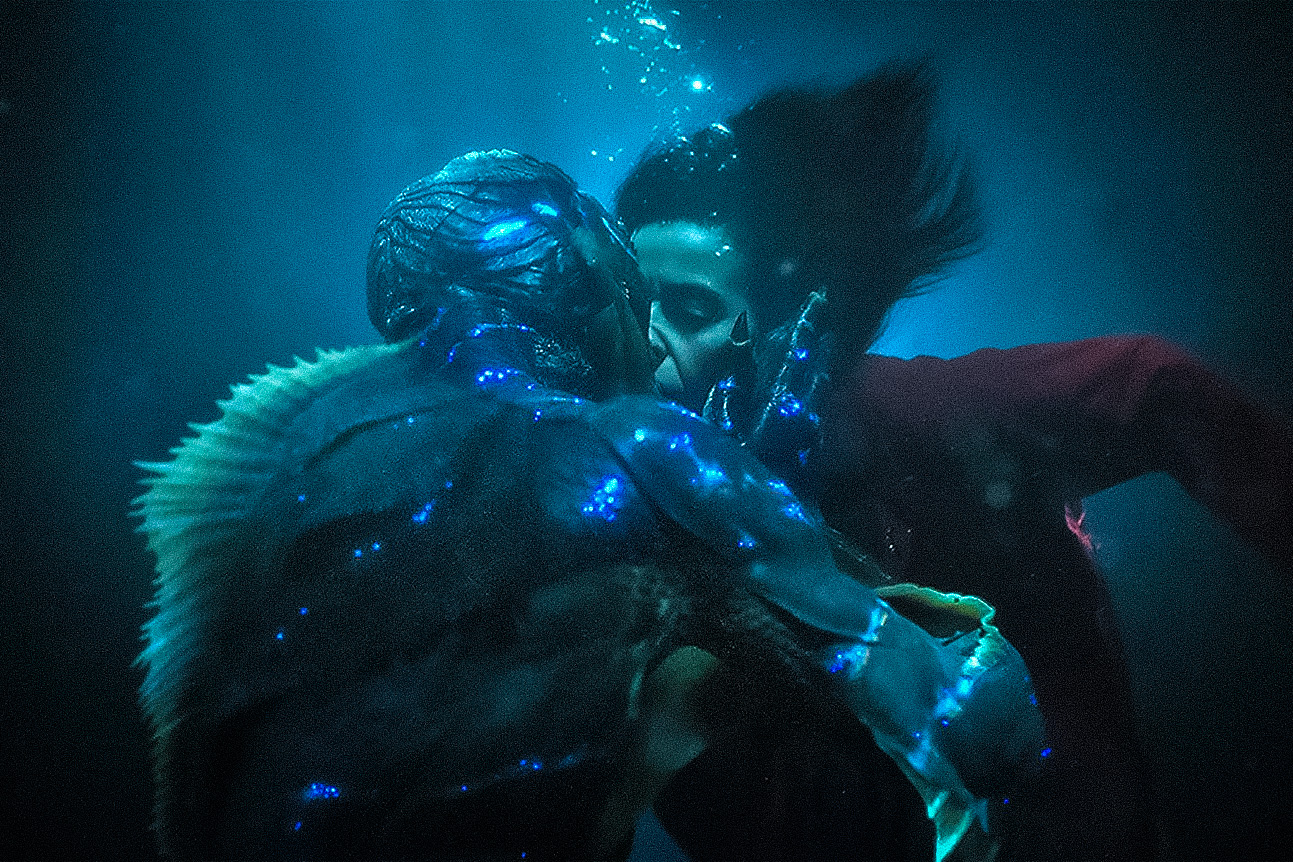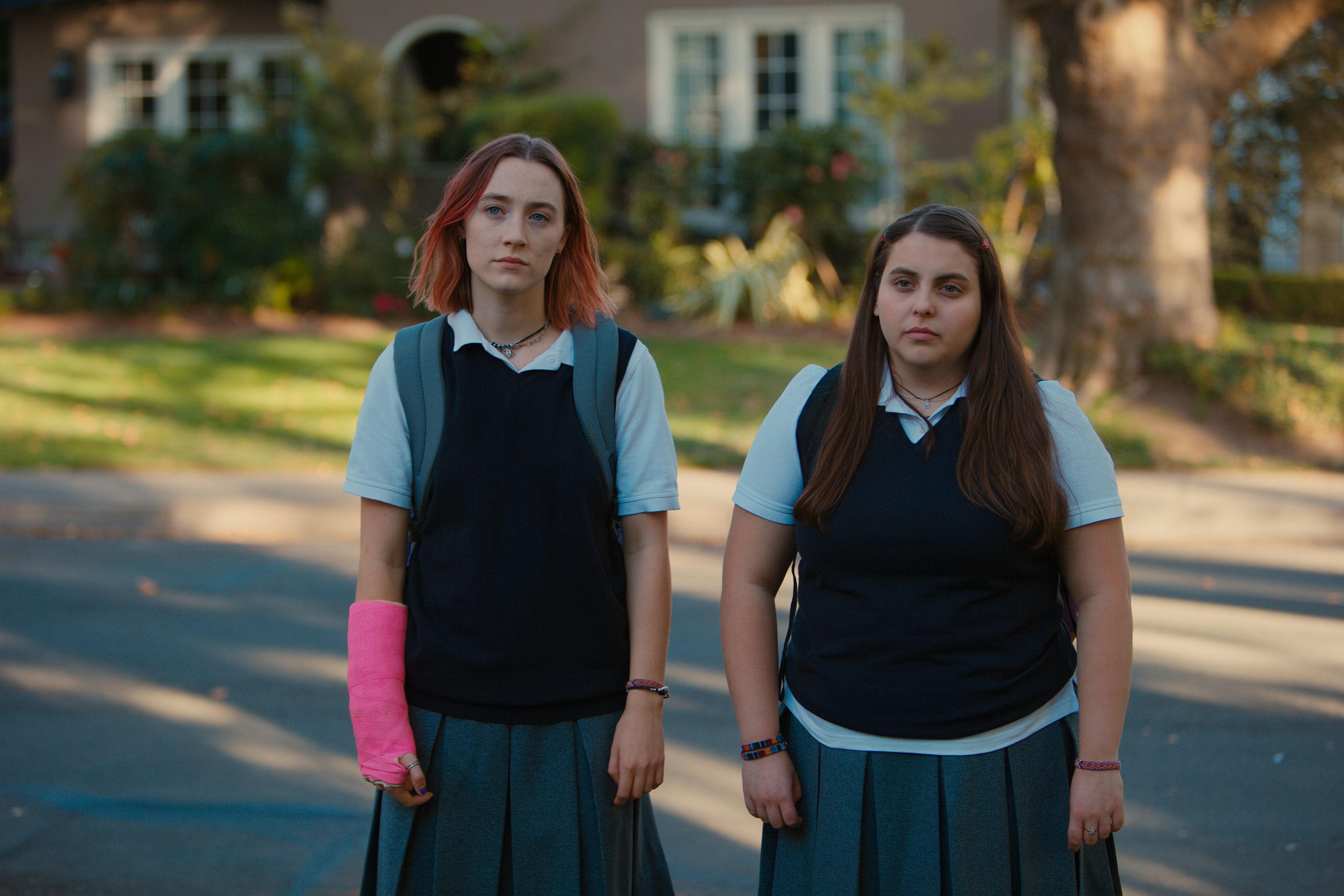In reviewing this year’s film reviews in Eugene Weekly, we were surprised and pleased to find that we’d hit just about every big, Oscar-nominated picture — except The Darkest Hour which, let’s face it, doesn’t stand a chance in hell.
Here, then, is our roundup, in no particular order. The envelope, please.
Lady Bird
In Lady Bird, her directorial debut, Greta Gerwig looks at familiar moments of teen dramedy — parental spats, ill-chosen crushes, disagreements with friends, a chafing disregard for the place you grew up — with an eye for what they actually feel like. Gerwig’s precisely observed script is full of the jagged rhythms of friendships and families and dotted with the kind of absurdities that abound when you’re 18 and just want to get the hell out of town. Though it’s set in the early aughts, the film avoids the kind of nostalgia that puts a false sheen of coolness on things — like remembering only the movies and albums deemed cool in hindsight, using things that weren’t cool as punchlines, shortcutting emotional resonance with memorable references. Gerwig and her cast and crew make Lady Bird look so easy that you might initially write it off as charming and slight — but this cinematic yearbook of a confident, flawed girl making her way into the world under her own power is big and vital and true. — Molly Templeton
Dunkirk
Dunkirk holds no surprises as a war-qua-war movie; in fact, the individual elements of its various plots are fairly predictable. What makes the film great is the way director Christopher Nolan, a master of controlled disequilibrium, jars us into new ways of looking at war. As Stanley Kubrick did in Full Metal Jacket, Nolan — who also wrote the screenplay — takes incredible liberties, twisting the standard stuff of the war film until it comes almost to resemble a horror film. War, after all, is hell, and the fact that Nolan reveals the truth of this without indulging the outright gore we’ve come to expect from such films is just one more testament to the achievement of his haunting, beautiful vision. — Rick Levin
Get Out
As a person of color who lives in Eugene, Oregon — Jordan Peele’s Get Out hits close to home. The film stars Daniel Kaluuya (Black Mirror) as Chris, a black man, and Allison Williams (from the HBO series Girls) as Rose, his white girlfriend. The couple are about to visit Rose’s parents for the first time, something Chris is nervous about, since Rose says she’s never had a black boyfriend before. But, Rose calms him saying her family would’ve voted for Obama a third time if they could. The film’s first half is laced in micro-aggressions from Rose’s seemingly well meaning, liberal parents — little comments about Chris’ race that, although offensive, still seem harmless. But, the film’s second half reveals that Chris’ discomfort in being the only black person in a white setting isn’t necessarily unfounded. No movie has accurately depicted the constantly throbbing anxiety and discomfort of race relations in “liberal America” better. — Meerah Powell
The Shape of Water
The Shape of Water is unflinchingly erotic and unsparingly violent, sprung from a mature and tragic sensibility that is well harmonized between poles of secular grotesquery and fabulist pomp, all of it coming together under a singular vision that, in this instance, deserves to be called epic. Like the Coen Brothers, to whose work his movie-making shares more than a passing resemblance, writer/director Guillermo del Toro seems to celebrate the movies themselves by tapping into the magical realms that only cinema can evoke. He even throws in a breathtaking nod to the choreographed fantasias of Busby Berkeley. The film is simply gorgeous, and it’s as well edited as any movie I’ve seen in a very long time. The pacing is superb. And beyond the captivating surfaces, the movie reveals a thematic and symbolic coherence that is truly rare, and for which del Toro himself has been striving since, say, Pan’s Labyrinth (2006). It might be a story as old as time itself — love and unity imperiled by greed and ignorance — but del Toro revitalizes it with a quality of soul that is no less timeless for being utterly urgent. — Rick Levin
Phantom Thread
As written and directed by Paul Thomas Anderson, Phantom Thread is an exquisitely tuned bit of camp, a film whose cloistered, hermetic atmosphere is so cramped with ulterior motives and suppressed emotions that it forever threatens to burst into slapstick or violence. What is being parodied, in the end, is the power struggle between men and women. Anderson’s take on it is painfully muted and terrifically melodramatic, creating a tension that allows all manner of Freudian folderol and Machiavellian sexual espionage to squeak through the whispering crevices. This is an uproariously funny film at which you may never once actually laugh. It sneaks up on you, and it’s all terrific fun. And in In Daniel Day-Lewis’ masterful performance as the quietly domineering fashion designer Reynolds Jeremiah Woodcock, we find traces of James Mason at his creepy patrician best, as well as a strong hint of Jimmy Stewart, whose obsessive male gaze in Vertigo seems a direct optical ancestor to Woodcock’s almost sadistic eye for feminine idealization. — Rick Levin
Call Me By Your Name
Call Me By Your Name is a languid, summery film, all aimless days and short shorts, dinner guests and occasional nods to privilege. Director Luca Guadagnino is in no rush; his film builds slowly and gently to a conclusion that seems inevitable. But that same conclusion deepens the entire film: It isn’t just about discovery, love, experience, a defining relationship. It’s also, very deeply, about kindness and acceptance. The film doesn’t insist on your attention for much of its two-hour running length; it lets you fall in and out, its scenes glazed with a nostalgia that almost encourages personal reminisces. But the end demands that you watch, and witness, and feel. — Molly Templeton
Three Billboards Outside Ebbing, Missouri
Rather than simply mocking rural hypocrisies, Three Billboards upends our pieties at every turn, revealing the hidden humanity of its characters. Writer/director Martin McDonagh does this without any concern for whom he offends; in fact, he’s so good at what he does that he wrings hilarity from language and situations that move beyond taboo into kind of a divine egalitarianism. Three Billboards poses what would seem a fairly straightforward question: What does it mean to seek justice? McDonagh plays with this question in surprising and revealing ways, upending and inverting and tangling our expectations as each character trudges forward in the tragic aftermath of an unsolved crime. At the center of this drama stand the aggrieved mother Mildred (Frances McDormand) and her nemesis, Deputy Dixon (Woody Harrelson), refracted images of each other. But this is equally Sam Rockwell’s movie. A combination of loutish swagger and bumbling insecurity, his racist deputy is a kind of embryonic everyman, easy to condemn but impossible not to like just a little bit. His arrogance and his vulnerability are inseparable. The pathos of Rockwell’s performance is the strangled soul of this film, and his slouch toward redemption, however deplorable, is a wonder to witness. — Rick Levin
The Post
The Post is also another really good Steven Spielberg film, and its pleasures are numerable, its problems insidious and nagging. Like Frank Capra before him, Spielberg is a master of narrative thrust, and he imbues the story of how the Post was given classified documents revealing the lie of the Vietnam War, and then published those findings, with all the propulsive gusto of a Hitchcock thriller. He has an absolute genius for keeping our attention. The rhythms and cadences of his films are unimpeachable. The greatest thrill of The Post is watching Tom Hanks and Meryl Streep tangle it up on screen as Ben Bradlee and Kay Graham, the Post’s real-life editor and publisher at the time. As the plot boils around them, full of the sound and fury of real history, Hanks and Streep create an alternate current — a chamber drama in miniature in which the film’s larger themes are treated as intimate human drama. — Rick Levin








